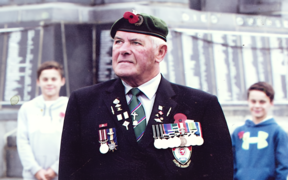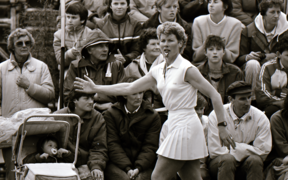1000 local drivers queue for Drive My Life mentoring
Sue Fea © the Southland App
25 November 2024, 9:15 PM
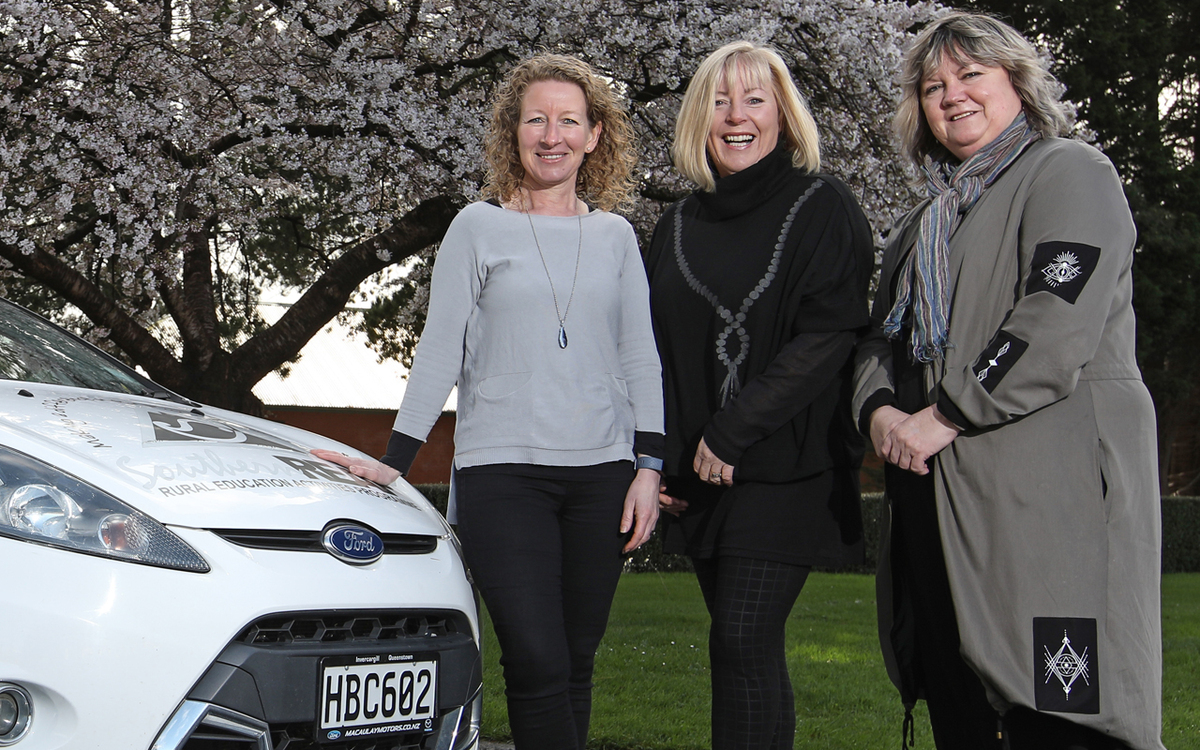 Drive My Life Manager Jonelle McDowall, Road Safety Southland’s Maureen Deuchrass and Southern REAP CEO Dawn Brocks with one of the Drive My Life cars. Photo: Supplied
Drive My Life Manager Jonelle McDowall, Road Safety Southland’s Maureen Deuchrass and Southern REAP CEO Dawn Brocks with one of the Drive My Life cars. Photo: SuppliedClose to a thousand unlicensed drivers are on the waitlist for a highly successful, Southland-born community mentoring driver licensing programme rapidly spreading in popularity throughout the southern region with help from 40 volunteer mentors.
The number of unlicensed drivers caught on Southland roads per capita is believed to be among the highest in the country and Drive My Life is aimed at reducing the number of unlicensed drivers on southern roads and keeping people out of the court system.
In the nine months from January to September this year the programme received 1167 referrals from 80 different agencies, including Police, the Corrections Department, ACC, churches, counselling services, schools and migrant organisations.
In that time 592 participants passed and 322 continued with the programme.
With 824 currently on the waitlist organisers say wait times have extended to 10 to 12 weeks but despite that greater numbers have passed this year than last year.
First founded in 2016 by Road Safety Southland Road User Safety Advisor Maureen Deuchrass and Police School Community Officer Constable Marty Lohrey came up with the idea after working with a local teen parenting unit.
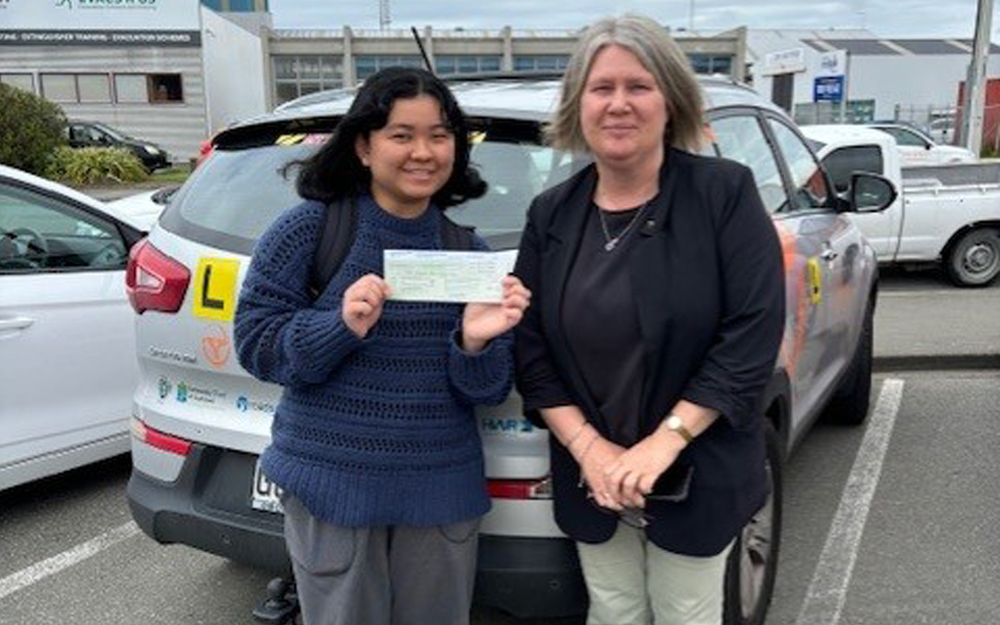
“A group of teenage mums were driving their partners and kids around when they were not properly licensed and getting a lot of fines,” Deuchrass says.
One young woman had racked up $3500 worth and was ordered through the courts to wear an ankle bracelet.
“We worked to get a couple of them through to their learner’s licence and many didn’t have safe vehicles to practise in, so we sought funding through Community Trust South and ILT.”
The Southland District Council provided a vehicle and petrol.
They trialled the programme targeting the Murihiku Young Parents’ Learning Centre and the results were astounding.
“It changes people’s lives immeasurably as driving offences are the quickest way to end up in the criminal justice system,” Deuchrass says.
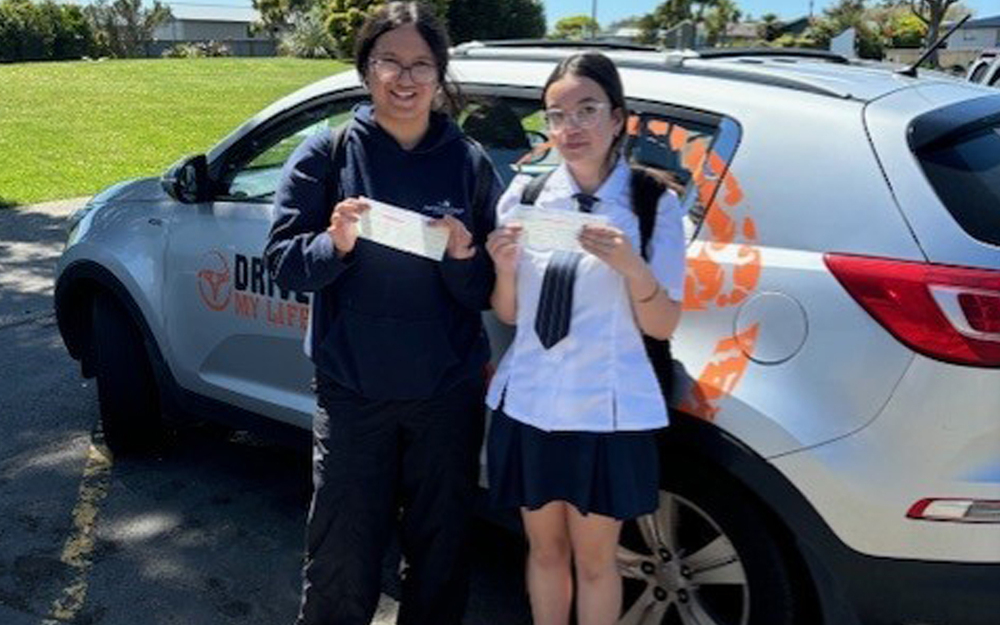
“It’s the fastest pathway to prison.”
Demand became huge.
“Of the original group of girls, we put through to their learner’s, one 18-year-old mum had two young children and her learner’s licence was her first ever qualification,” she says.
“It gave her such confidence that she went on to do Level 2 NCEA. Her parents also didn’t have licences and walked her two wee children to the AA office to congratulate her that day, both in tears.”
Early Southland mentor Ann Eustace, who’s since moved to Nelson, says it was immensely rewarding, and she wanted to help the programme up there but there wasn’t one.
“When they pass the pure joy, the look of great pleasure and happiness that comes from passing their practical, that’s reward enough for me,” Eustace says.
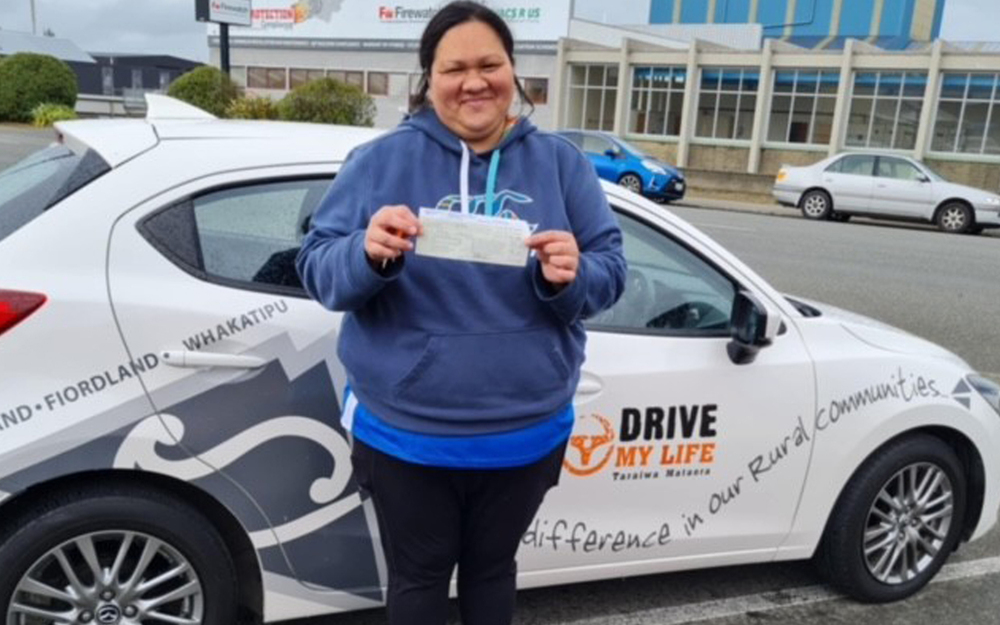
Mentors can sit in the test car while participants are tested.
“It gives them huge confidence and pride. It must be such a boost to their self-esteem. When they all pass eventually, that joy. They’re just about jumping out of their skin,” she says.
There’s been a massive demand for the programme which has now become firmly established throughout the wider Southland region and up into Fiordland, the Wakatipu and Central Otago.
In 2018 Southern REAP CEO Dawn Brocks brought her skills in sourcing funding for the programme and the model has since been adopted through REAP in other areas with demand increasing.
Brocks now coordinates Drive My Life in Invercargill, Gore, Central and Northern Southland and Queenstown with Central Otago operating the model through its own funding streams.
Volunteer readers and translators assist during testing for those with learning difficulties, the neurodivergent, or those who aren’t proficient in English. It’s been great for the migrant and refugee communities – particularly Filipino and Columbians, Deuchrass says.
It’s been an enormous self confidence booster for so many of the thousands of participants who’ve successfully completed the programme, resits encouraged if necessary until they get there.
“If the Police pick up a young girl who’s been forced to drive, maybe her boyfriend is drunk and she’s not licensed, then they refer her to us instead of her following a criminal pathway,” she says.
It’s also enabled many to secure work. “You’re seven times more unlikely to get a job without a licence.” Some who go on to get jobs have come back as mentors.
One young woman had been abused by her partner, trapped at home and not allowed to leave the house.
“While he was in jail she got her licence with us.”
Having no licence has huge ramifications, she says.
One unlicensed couple lived near Makarewa off the school bus route so their children couldn’t go to school until they did the programme.
For many it’s also their first form of ID.
“These are vulnerable young people who may not have people in their lives to help them, no discretionary income, no decent car, no parents or grandparents giving them lessons.”
The programme operates five star-safety rated vehicles for the practical driving component across the south and participants range in age from 16 to 64, with the average age around 25. More than 56% are females.
Deuchrass says participants are equipped with increased knowledge of the road rules, receive professional instruction and complete a defensive driving course, if necessary, giving them the tools needed to be much safer drivers.
NEWS
SOUTHLAND'S LOCAL LEGENDS
EVENTS
